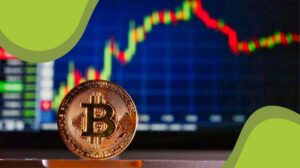
Portugal officially collects and publishes statistics on real estate transactions involving foreign buyers, but the publicly available data is usually aggregated by group (Portuguese buyers, EU residents, non-residents/non-EU), without a detailed breakdown by nationality. Detailed rankings of buyer countries are usually provided by specialized analytical companies and media based on real estate network databases.
According to data from the Portuguese National Statistics Institute (INE), in 2023, foreigners accounted for about 7.6% of all home purchases in the country, but provided approximately 13% of the total value of transactions. At the same time, buyers from non-EU countries pay an average of around €405,000 per property, while foreigners from the EU pay around €277,000, and the average market price is around €200,000.
In some regions, the proportion of foreigners is much higher. In the Algarve, they account for about 27% of all transactions and up to 38% of the total sales value, with 4 out of 5 properties there being purchased by non-residents. In cities, primarily Lisbon and Porto, the share of foreign transactions is smaller, at around 4-6%, but it is in the capital that the most expensive purchases are concentrated.
Private analysts provide a detailed picture by nationality. In Lisbon, according to Confidencial Imobiliário, 4,750 apartments and houses worth €2.22 billion were sold in the Urban Rehabilitation Area in 2023, of which 1,580 properties (about a third) were bought by foreigners. Buyers from North America led the way (approximately 16% of all “foreign” transactions), followed by the French (13%) and the British (9%). Chinese, Brazilian, and German investors also had a significant presence.
In the Algarve, according to estimates by Engel & Völkers, British buyers predominate, but there is also an active presence of citizens from Germany, France, Sweden, Switzerland, and the Netherlands; interest from Americans is growing noticeably.
Based on this data and market reviews, we can identify a conditional “top 10” of the most active foreign buyers of Portuguese real estate (by number of transactions and total investment volume):
Investors under the previous “golden visa” scheme (primarily from China, Brazil, Turkey, the US, and South Africa) are listed separately, but following the reform of the program, their share is gradually being redistributed in favor of “regular” transactions.
Thus, Portugal publishes official data on the share and prices of transactions with foreigners, but a detailed map by nationality is based mainly on research by specialized agencies and market analysts. Taken together, they show that demand is primarily driven by investors from Western Europe, North America, and Brazil, while the role of buyers from Eastern Europe and the CIS remains niche.

According to Serbian Economist, Serbia has once again become one of the leading foreign investors in Montenegro’s economy, ranking second in terms of direct investment in January-August 2025, behind only Turkey.
According to preliminary data from the Central Bank of Montenegro, the total inflow of foreign direct investment (FDI) for the eight months of 2025 amounted to €595.58 million, which is 3.46% more than in the same period last year. Net investment inflows reached €314.39 million, down 4.75% year-on-year.
Of this, €376.83 million (63.3% of total inflows) was accounted for by partial investments, mainly in real estate (around €308.9 million, +8.4%), while investments in companies and banks declined to less than €68 million. Approximately €197.1 million (33.1%) accounted for intercompany debt.
In terms of country structure, Turkey was the leader with €92.2 million, of which more than half accounted for intra-group debt, and approximately €35.5 million accounted for real estate purchases. Serbia came in second with €91.84 million, with Serbian investors investing around €60.9 million in real estate in Montenegro. Next came Germany (€43.5 million), the US (€41.6 million), and Cyprus (around €40 million).
The United Arab Emirates invested about €30.7 million, dividing the funds roughly equally between real estate and intercompany financing.
Russia, which was previously among Montenegro’s largest investors, has fallen to seventh place.
In terms of direct investment, Ukraine is not among the top five foreign investors in Montenegro, but Ukraine’s presence in the country’s economy is gradually expanding. According to data from Montenegro’s tax and customs authorities, in 2022 alone, Ukrainian citizens founded about 200 companies, which is about 3% of the total number of new companies created by foreigners during the year.
Earlier it was reported that against the backdrop of the war and the relocation of businesses to Montenegro, the number of Ukrainian citizens who received temporary and permanent residence permits has increased significantly, with Ukrainian companies mainly operating in the service, IT, and small business sectors.

In less than a month, professional market participants bought three-year series K bonds of the international financial service NovaPay (TM NovaPay) for a total amount of UAH 100 million.
According to the company’s press release on Tuesday, the issuer was NovaPay’s subsidiary, NovaPay Credit LLC, and the bonds were placed on the Perspektyva stock exchange.
Their term of circulation is until August 6, 2028, with an annual offer, interest is paid quarterly, and the nominal rate in the first year of circulation is 18% per annum.
During 2023-2024, NovaPay issued nine series of bonds, and in 2025, it issued the 10th series and has already announced the issuance of the 12th series, “L.” The volume of each series is UAH 100 million, with the exception of one series, which is UAH 90 million.
Securities of all series, except for three, are used for REPO operations as an alternative to bank deposits and are available for purchase in the NovaPay mobile app. Series C and I bonds, as well as series K bonds, were placed among institutional investors for a total amount of UAH 190 million.
NovaPay was founded in 2001 as an international financial service, part of the Nova group (“Nova Poshta”), providing online and offline financial services at Nova Poshta branches. According to the website, the company employs about 13,000 people in more than 3,600 Nova Poshta branches throughout Ukraine. According to the National Bank of Ukraine, the company accounts for about 35% of the total volume of domestic money transfers.
NovaPay was the first non-bank financial institution in Ukraine to receive an extended license from the NBU in 2023, which allowed it to open accounts and issue cards, and was also the first among non-banks to launch its own financial application with a wide range of financial services at the end of last year.
According to the prospectus, NovaPay Credit plans to increase its interest income to UAH 802.1 million this year and to UAH 1 billion 515.1 million next year, and to earn UAH 518.9 million and UAH 1 billion 30.6 million in net profit, respectively.
Last year, the company’s net profit grew to UAH 89.2 million from UAH 40.3 million a year earlier, with revenue growing to UAH 285.6 million from UAH 95.6 million.

Ukrainian businessmen and representatives of the diaspora will remain the main investors in the Ukrainian hotel market in 2023–2025, according to Apartel Resorts partner Yevgeny Kudryavchenko in an interview with Interfax-Ukraine.
“We are seeing activity from local entrepreneurs who are looking for long-term investment opportunities. At the same time, Ukrainians who work abroad and want to invest in their homeland are increasingly showing interest. Foreign funds are still taking a wait-and-see approach, but interest in the segment has already emerged,” he said.
According to the expert, in the coming years, we can expect a gradual expansion of the circle of investors, including foreign development companies and real estate funds.
Apartel resorts is a development company specializing in apart-hotel and hotel real estate projects in Ukraine.

The share of investors who repeatedly buy S1 REIT fund certificates from the developer Standard One has grown to 43% in the five months since the funds began operating, according to the project’s press service.
“We have provided investors with the opportunity to increase their profits by increasing their own share. The minimum additional investment is equal to the cost of one certificate, which is just over UAH 1,000. But despite our expectations, the average amount of repeat sales is significantly higher, at almost UAH 90,000,” said Viktor Boichuk, commercial director of S1 REIT, in a press release.
He noted that currently, the vast majority of investors are people with investment experience who already have a certain portfolio of assets.
“For them, S1 REIT is an opportunity to diversify their asset portfolio with a relatively small check. In the first weeks of our work, investors went through a ”getting to know you” phase, studying us and our offer. Now we see their confidence growing,” Boichuk added.
He added that the project plans to scale up by reaching a new audience—Ukrainians who have not yet had experience in investment activities due to a lack of knowledge or significant start-up capital.
“The key advantage of S1 REIT is its accessibility. The entry threshold is the equivalent of $3,000, which is significantly less than the initial investment in the Kiev real estate market,” said the top manager.
As reported, in April this year, Kiev-based developer Standard One, which specializes in Build-to-Rent projects, announced the launch of a new product, S1 REIT. This is an investment tool that allows you to become a co-owner of square meters in profitable S1 buildings without having to personally manage the assets. Currently, S1 REIT has two open funds: S1 VDNH, with a planned yield of 8.2% per annum in US dollars, and S1 Obolon, with a yield of up to 10% per annum.

The Fixygen project presents an analysis of promising cryptocurrencies that may increase in value.
1. Ethereum (ETH) – the foundation of decentralized finance
Ethereum continues to show strong momentum. By September 2025, its price had reached a record high of $4,956, and experts predict further growth to $7,500–$12,000, fueled by institutional demand, ETF approval, and the expansion of DeFi and Web3 applications.
2. XRP, Cardano (ADA), and Remittix (RTX) — a balanced portfolio of opportunities
3. DeFi token market: Uniswap, Aave, and Layer Brett
Ethereum remains the foundation, but real income can be generated through DeFi tokens:
It is important to remember that investing in cryptocurrencies is a balance between risk and potential, and it is wiser to invest in projects with working solutions and transparent architecture.